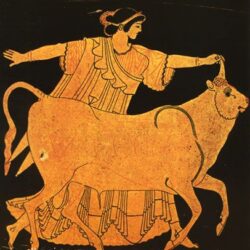I think P. I. Lebedev-Polianskii’s “Revolution and the Cultural Tasks of the Proletariat” is a really fascinating read, both on its own and in the way its content interacts with that of Anna Litveiko’s “In 1917” and Lenin’s “Communism is Soviet Power + Electrification of the Whole Country” speech. In the case of the former, Lebedev-Polianskii admits:
“We all here consider ourselves socialists, but if each of us were to analyze his own life, he would find in himself much that was bourgeois. This is our misfortune, and it is an inevitable one. Bourgeois culture has enmeshed us for many years, and it is too difficult for our generation to break the net right away with one burst” (Lebedev-Polianskii).
This directly correlates to some of the feelings Litveiko struggles with as a young woman, like when she compares herself to the “unkempt…true revolutionary” and examines her own unwillingness to part with material beautifiers like ribbons and braids (Litveiko 58). I think this is a really interesting point of contention, and one that makes me wonder about the validity of Lebedev-Polianskii’s assumption that this is a purely nurtured phenomenon. Do you think this gravitation towards “bourgeois” tendencies is something that is fostered by a capitalist environment? Or do you think there is some natural inclination involved? To what extent is it possible to unlearn those feelings/preferences?
I also think Lenin’s speech has some relevance here–how does this concept of “enlightenment” fit into this unlearning? In what ways does Lenin’s speech support and reject Lebedev-Polianskii’s ideas about the Proletkult?
